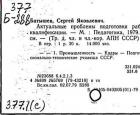Can they write off money from the card? Can an MFO write off money from the borrower’s card? Bailiffs withdrew funds from the card
How to write off money from a sub-account without documents , and do this without the negative consequences that are possible with the close attention of tax inspectors? A question that often arises among accountants of various organizations. Let's try to understand this situation.
Write-off of debt on account without supporting documents
For any accountant, the topic of writing off expenses incurred without supporting documents is difficult and exhausting, since the current legislation (Article 9 of the Law “On Accounting” dated December 6, 2011 No. 402-FZ) does not provide for transactions that are not confirmed by the primary account.
The legislator says unequivocally: documents confirming its economic feasibility must be submitted for expenses incurred. If the accountable person loses documents justifying the expenses incurred, the consequences can be the most unpleasant, since it is impossible:
- record the posting of purchased materials or payment for various business needs;
- write off the employee's debt for accountable amounts;
- take these expenses into account as part of the tax base when calculating income tax (letter of the Federal Tax Service for Moscow dated April 12, 2006 No. 20-12/29007).
Accumulation of debt on issued reports is a dangerous trend. Sooner or later it will attract the attention of tax authorities, and it is better to take action before this happens.
You can learn about common mistakes when accounting for settlements with accountable persons and how to avoid them in our article.
In other words, it is impossible to write off completely unconfirmed amounts as expenses, but there are legal possibilities to correct the situation. Let's look at them.
Restoring copies of supporting documents
If documents have been lost, you need to try to restore all possible papers that directly or indirectly confirm the costs incurred (clause 1 of Article 252 of the Tax Code of the Russian Federation), and also draw up an advance report, attaching to it:
- an explanatory note in which it is necessary to indicate the dates, names and amounts of purchases, and also state the situation that caused the loss of the primary documentation;
- copies of documents requested again from the counterparty: duplicates of PKO receipts, copies of the cashier’s z-report on the date of purchase, collected cash and sales receipts for the purchase, etc.
Deduction of accountable amount from salary
If, however, neither direct nor indirect evidence of costs could be collected, the employer has the right to withhold the amount of the report from the employee’s salary (Article 137 of the Labor Code of the Russian Federation). To do this you need:
- within a month from the date of expiration established for the return of accountable amounts, issue an order to withhold;
- familiarize it with the signature of the employee, who, in turn, must agree in writing with the basis for the withholding.
If the employee’s consent is not obtained, money can only be recovered from him through the court.
It should be remembered that the total amount of deductions should not exceed the 5th part of the earnings due for handout (Article 138 of the Labor Code of the Russian Federation). If it is impossible to collect the full amount, several payments are established at once.
Issuance of financial assistance or cash gift
You can pay off the reporting debt by issuing a fictitious payment to the employee of financial assistance or a cash gift. Moreover, the maximum amount of financial assistance not subject to personal income tax and assessment of contributions is 4,000 rubles. per year per 1 employee (clause 28 of article 217 of the Tax Code of the Russian Federation, article 9 of the law “On insurance contributions” dated July 24, 2009 No. 212-FZ).
The same limits apply when employers issue cash gifts to employees. Please note that for gifts worth more than 3,000 rubles. a gift agreement should be drawn up (clause 2 of article 574 of the Civil Code of the Russian Federation).
Applying for an interest-free loan to pay off debt
To write off the debt from the 71st account, you can re-register it as a loan issued by the company to an accountable employee by drawing up a loan agreement (Article 807 of the Civil Code of the Russian Federation). It should be understood that this measure will not solve the problem immediately, since it will extend the repayment of the debt over time. In addition, the use of an interest-free loan will entail the emergence of material benefits for the employee while saving on interest that would have to be paid if the loan were issued at any credit institution (clause 2 of Article 212 of the Tax Code of the Russian Federation). Personal income tax of 35% will have to be charged on the amount of material benefits.
Results
It is possible to write off a report without supporting documents (if they were missing or lost) in different ways - some of them were given in this material. It should be understood that any of the methods used will still require the preparation of appropriate primary documentation, since the legislation does not allow writing off accountable amounts without documentary confirmation of the relevant transactions.
Many clients of microfinance organizations are concerned about rumors that MFO employees can allegedly write off money from the borrower’s card if the loan is overdue for a long time. And so, let's try to figure out how legal it is to repay a loan from a defaulter's bank card.
Generally accepted procedure for returning an overdue loan
First, we need to remind you that in any case, in particular when applying for an online loan, the lender is obliged to return his money through the court. Based on the verdict, after all the deadlines allotted for appeal, a writ of execution is issued, according to which the bailiffs begin their work.
It is they who, in the process of studying the financial capabilities of the defaulter, can block the required amount on his bank card and transfer it to the account of a credit institution. And in no case do MFO employees have the right to write off money from the borrower’s card without his consent. For example, when receiving, you may encounter a similar situation.
However, in this case, we are considering a situation where an MFO, without recourse to the courts, independently withdraws the funds missing before repaying the loan.
How legal is this?
The fact is that Russian legislation does not prohibit such a procedure for repaying debt, but only on condition that the borrower himself expresses his consent to this measure at the stage of concluding the contract. In turn, when providing an urgent online loan, such a loan repayment option is almost the only way for MFOs to guarantee debt repayment. Therefore, this clause is usually placed in agreements on what is provided, that is, through the electronic resources of microcredit institutions.
Thanks to this provision, the creditor has the legal right to forcibly debit the amount required for repayment from the debtor’s card, without even notifying him about it. So, in order to avoid unpleasant surprises, you should read the text of the agreement with the MFO very carefully before concluding it.
Blocking a certain amount on the card to verify its authenticity
In addition to debt repayment, a similar measure is used by microcredit institutions operating in the online space to authorize the client, as well as verify his rights to use a plastic card. You can also easily get it on our website from the presented microfinance organizations.
- To do this, at the stage of consideration of the application, a certain amount is blocked on the card, the number of which the client enters in a special column. Conditionally – 20 rubles;
- However, before this, the future borrower is asked for permission to perform this operation;
- After blocking a particular amount, a special window will appear on the registration screen in which you should enter the amount of blocked funds;
- As a result of successful confirmation of the authenticity of the entered data and rights to the bank card, the blocking is removed.
So, among a number of microfinance organizations, the practice of withdrawing funds from the debtor’s bank cards when the overdue loan is repaid is widespread. You should be prepared for this when drawing up a loan agreement, especially through online services. Be careful when signing the contract.
Maria Ilyushina
Last week, Doctor at Work CEO Stanislav Sazhin raised on his Facebook about whether an app can charge users for an automatic subscription if they don't already use the app - using the easy ten language learning app as an example.
Sazhin created a website with the following message:
When you first launch the application, the user sees an offer - get a free mode for 7 days. If the user agrees, he receives 7 free days, as well as an auto-subscription worth 899 rubles, which is not mentioned in the first window. This information is reported on another panel in small text.
 |
 |
Apparently, this small text often escapes the user’s attention, since reviews of the application are full of negative comments:

In a discussion of this situation on “CP”, Dmitry Zaryuta left the following comment:
We use standard subscription tools provided by Apple, in accordance with the rules. It is worth noting that in this version, the application has been moderated by Apple censors 8 times and has never raised any questions in this regard. Users see the offer “in 7 days you will be automatically charged 899 rubles” and confirm their agreement by entering their Apple ID password.
I will not deny that there is a problem with the fact that some people click and enter their data without reading anything at all, and then they are surprised that the money was written off.
Rusbase decided to ask industry experts whether this method of monetization is considered normal practice:
Alexander Vasiliev, AdCamp:
This mechanics really allows you to quite quietly debit money from users. Of course, this is not normal. But everything that is not prohibited, as they say, is permitted, so we cannot talk about any violations on the part of the developer. The question is whether this application was originally created for the purpose of extracting money from users unnoticed; if so, then its creator acted incorrectly towards his clients.
Egor Karpov, Appintop
I can’t say for sure whether this is a legal violation or not. This is definitely not a normal tactic for such services; it happens very rarely and will only bring problems to the creator in the long run.
Due to the specifics of the job, you often have to communicate with mobile application developers, and those who set themselves the main goal of extracting as much money as possible from users (and by any available means) fail in 100% of cases. Success is achieved by those developers who put the product (application) itself at the forefront.
Of course, such an easy ten approach is doomed to failure. The only question is what is faster, from the ban of the application store or from banal unprofitability.
Obtaining a loan from an MFO is a fairly popular procedure today. Citizens who regularly use the services of microfinance organizations are wondering how the loan is repaid in case of delay. Is it possible to withdraw funds from the client's card account? And will this method of debt repayment be legal? It is worth considering this situation in more detail.
Repayment of an overdue loan by microfinance organizations: featuresprocedures
Typically, debt repayment occurs through the courts. This also applies to loans issued via the Internet. If payments are late, the creditor goes to court to collect the borrowed funds. After issuing the writ of execution, the bailiffs begin work. After studying the financial situation of the defaulter, they can block the required amount and transfer it to the account of the institution that issued the loan. Specialists of a microfinance organization do not have the right to independently carry out such an operation if there is no consent of the client.
However, there is another side to this that the borrower is often unaware of. It concerns the situation when the client has given his consent.
A clause on debt repayment through the payer’s card account can be included in the agreement. Typically, this condition is provided when applying for an urgent loan via the Internet. When making an online request, the client is often unaware of this procedure for collecting funds and, when concluding an agreement, does not pay attention to this clause in the contract. However, for microfinance organizations, this method is sometimes the only opportunity to return funds provided through online resources.
Is it legal for a microfinance organization to write off money on its own?
If the client has entered into an agreement and agreed to the terms, then returning the loan by debiting funds from the borrower’s card becomes absolutely legal. Moreover, in this case, notification of the payer is not even required. In order not to find yourself in a similar situation and to avoid unpleasant surprises, you should carefully study the contract before signing it, and not after.
Using blocking of funds on the card during client authorization
A small amount can be blocked by MFO specialists at the initial stage of work - before receiving a loan. The borrower's consent in this case is required. Why is this being done? This measure is often used by microcredit organizations to authorize a client and verify his right to use a plastic card. Before carrying out the operation, the employee obtains permission from the potential borrower. After which it temporarily blocks the funds. After confirming the authenticity of personal data and rights to the card, the amount will be unlocked and the client will be able to use the loan.
When applying for a microloan through online services, do not forget to carefully read all the clauses of the agreement.
Application form
A bank account can be emptied due to housing and communal services debts. Muscovite Natalya Petrova (last name changed at her request) suddenly lost all her money on her card - the bank wrote off the funds without warning at the request of the bailiffs.
At the same time, the client of the credit institution did not receive notifications about the operation either from the bailiffs or from the bank employees: “I received an SMS stating that all the money that was on the card was 23 thousand rubles. - written off. The message also contained information that “the amount of debt remained minus 60 rubles.” I didn’t even understand what it was and immediately started calling the bank, which gave me the order number. I was just in shock because I don’t have a car, I don’t even get fines for parking. But my son and I were renting out an apartment, and there really was a debt hanging over it. I know that he only has a few pennies left to pay. I had no idea that there was any kind of trial. The first information I learned about this was only from an SMS from the bank.”
The woman was outraged that no one warned her about the write-off in advance. However, the Association of Regional Banks of Russia explained that banks should not warn clients, but are only obliged to comply with the orders of government agencies to write off funds. Currently, bailiffs have an agreement on forced debiting of funds with 113 banks, and interact with 20 of them electronically.
The Federal Bailiff Service is required to send notification to citizens. But often letters are sent to addresses where debtors are only registered, or are not sent or are delayed for technical reasons. This was reported by the former bailiff, now lawyer Evgeny Stupin: “When initiating legal proceedings, bailiffs are obliged to notify the debtor about this. It is clear that in reality this encounters great difficulties associated, firstly, with the work of the post office, and secondly, with expenses: bailiffs often do not have enough envelopes or money to send letters. We have on average about 2 thousand enforcement proceedings for each bailiff. At the moment the system is like this. It is so imperfect that the bailiff cannot call everyone. Therefore, of course, there should be a notification, but in reality, if it arrives, it will be very late. Therefore, funds are debited from bank accounts much earlier than notification of this operation is received.”
As stated by the Minister of Construction and Housing and Communal Services Mikhail Men, Russians owe more than 1.3 trillion rubles for housing and communal services. In Moscow, the average debt is 62 thousand rubles. Money can be debited from a bank card at any time, says lawyer Kirill Chernyavsky. In addition, since 2017, by decision of the Supreme Court of Russia, debts for housing and communal services have been collected in an accelerated manner, the expert recalled: “This is not a court, but a so-called court order. That is, there was no trial itself. It’s just that organizations that request funds, for example, for housing and communal services, write that Ivan Ivanovich Ivanov owes such and such an amount for such and such a period and attach a fairly small package of documents. The procedure itself is quite transparent, and the judge, without calling the parties to court, immediately makes a decision. That is, a person may not even know that some kind of case has been opened against him.”
The current practice allows not only to write off funds or freeze the accounts of debtors. Bailiffs can restrict travel abroad if the amount of debt is more than 10 thousand rubles, and also, in case of large debt, seize a car, country house, garage and other movable and immovable property.








 Why Bukhsoft Online is better than a regular accounting program!
Why Bukhsoft Online is better than a regular accounting program! Which year is a leap year and how to calculate it
Which year is a leap year and how to calculate it Prayer for lighting a lamp at home
Prayer for lighting a lamp at home What was their strength and what was their weakness?
What was their strength and what was their weakness?